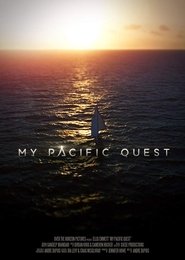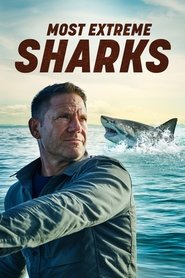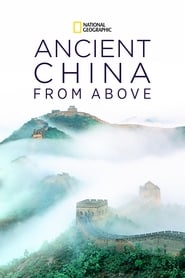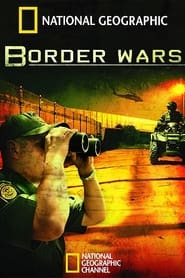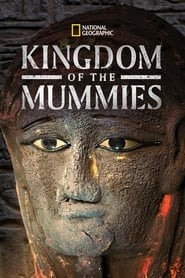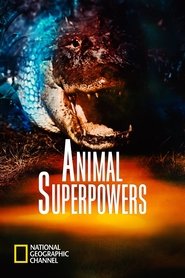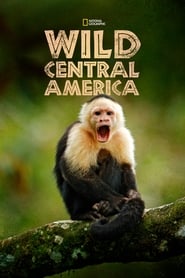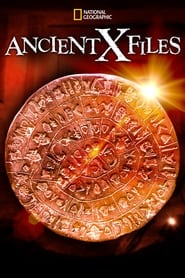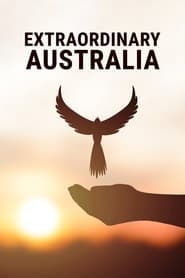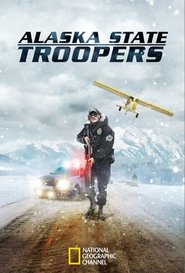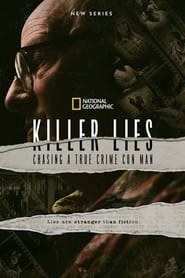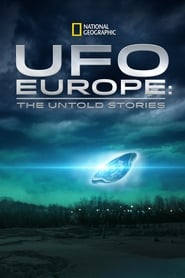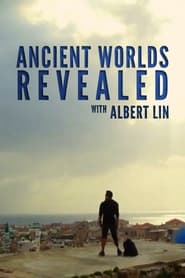National Geographic TV Series - Page 13
-
My Pacific Quest
2017
My Pacific Quest
2017
Kiwi adventurer Ellis Emmett embarks on an incredible journey across the waves of the South Pacific. He must harness the power of the wind to explore some of the most remote islands and atolls on the planet; places only accessible by sailboat. Greeted by the isolated people who call these shores home, Ellis immerses himself in the fascinating, yet threatened cultures of Tonga, Fiji, Wallis and Futuna, the Marshall Islands, and Kiribati. -
Most Extreme Sharks
2023
Most Extreme Sharks
2023
While traveling the world, Steve Backshall dives with great white sharks, hammerhead sharks, tiger sharks and many more, to celebrate the wonder of sharks and dispels the myth of sharks as nothing more than cold-blooded killers. His adventures serve as a form of awareness regarding shark extinction in hopes that the species will be saved. -
Borderland
2014
star 7.2Six average Americans are confronted with the realities of illegal immigration while retracing the footsteps of dead border runners. -
China From Above
2015
star 5China is a land of immense scale and diversity, an ancient civilization with a fascinating history dating back thousands of years. From the monumental engineering feats of the Great Wall, to innovative and unique farming techniques, and a massive water splashing festival, you’ll discover how China has transformed its cities and infrastructure so much in three decades while still retaining its strong traditions, and how these strong traditions have shaped China’s landscape to make it uniquely recognizable and truly magnificent, especially from the air! -
Ancient China from Above
2020
star 10Archaeologist Allan Maca leads a team of intrepid experts on an epic adventure to solve mysteries, explore secrets and reveal amazing wonders of Ancient China like never… Read More -
Border Wars
2010
star 7.5Border Wars is an American documentary television series on the National Geographic Channel. The program follows agents of the U.S. Border Patrol, U.S. Customs and Border Protection, Immigration and Customs Enforcement, and other divisions of the Department of Homeland Security as they investigate and apprehend illegal aliens, drug smugglers, and other criminals violating immigration to the United States and customs laws. The series also follows Air Interdiction Agents, and Marine Interdiction Agents who patrol along the U.S.-Mexico border, as well as southern Florida and Puerto Rico. -
Scuba Sam's World
2018
-
Kingdom of the Mummies
2020
star 6.8The series follows a team of archaeologists led by Ramadan Hussein from Germany’s Eberhard Karls University of Tübingen, in conjunction with Egypt’s Ministry of Tourism and Antiques, as they uncover the country’s first known fully intact funeral home. -
Animal Superpowers
2012
Animal Superpowers
2012
How can an octopus turn itself invisible in the blink of an eye? How can a sailfish outrun a speedboat? How can a snake strike prey with deadly accuracy in total darkness? Patrick Stewart introduces these elite creatures with extreme abilities to move, sense, hunt, heal and survive, while a team of scientists undertake risky missions to unlock the anatomy behind their secret superpowers. -
Wild Central America
2020
star 10Join narrator Nigel Marven as he discovers the colourful and varied wildlife and culture of Central America. -
World's Toughest Fixes
2008
star 6.3World's Toughest Fixes is an American reality series that premiered on the National Geographic Channel on September 28, 2008. It features Sean Riley participating in various "tough fixes"; repairs and renovations done on equipment that is very large or dangerous. Riley is an expert in heavy duty rigging and load bearing, and works with other specialized engineers to tackle these uniquely difficult jobs. A first season aired 8 episodes beginning on September 26, 2008. A second season aired 8 episodes beginning on June 4, 2009. A third season of 7 episodes aired beginning May 6, 2010. A fourth season aired beginning September 30, 2010. The first season DVD contains 10 episodes, 2 of which aired in season 2. The second season DVD contains 11 episodes, 5 of which aired in season 3. -
Ancient X-Files
2010
star 7.2Ancient X Files travels around the world to solve some intriguing riddles. Each story is a piece of detective work by an expert trying to make sense of some puzzling ancient artefact, to find the truth behind some extraordinary legend, to discover the origins of a bizarre myth or to establish the authenticity of a venerated religious relic. This series explores the bits of archaeology and history which seem to defy explanation. Our experts are following chains of clues and putting theories to the test, in an effort to explain the unexplained. Ancient X Files investigates claims about the whereabouts of the lost Ark of the Covenant; attempts to establish the authenticity of a cup some believe to be the Holy Grail; tries to de-code the mysterious Phaistos disc; investigates a cloth which is believed to carry traces of the DNA of Jesus Christ; and deciphers an encrypted book of alchemy written by the great Sir Isaac Newton. -
Sam's Zookeeper Challenge
2018
Find out if Sam has what it takes to hang with animals in "Zookeeper's Challenge." Watch as Sam is challenged to feed, clean, and care for Kinkajous, Giraffes, Penguins, and more! -
Extraordinary Australia
0000
star 8Australia's biodiversity thrives in the diverse terrestrial and marine habitats that span the country. Lush rainforests offer a refuge for countless plants and animals, while the vast dry eucalyptus woodland is home to numerous specially adapted species. Kangaroos, wallabies and platypuses are just a few of the iconic animals that call Australia home, showcasing the country's evolutionary distinctiveness. Meanwhile, the waters surrounding the country support some of the most spectacular marine biodiversity on the planet. Vibrant coral reefs, seagrass meadows and rocky shorelines contribute to the country's rich marine tapestry. This is a unique world filled with stunning natural beauty, inhabited by some of the most extraordinary and deadly animals on the planet. -
Alaska State Troopers
2009
star 7.8They are the first line of defense on the last frontier, the roughly 400 state troopers who patrol the rugged and unforgiving terrain of America’s largest state — Alaska. One of the toughest law enforcement agencies in the nation, these officers often travel hundreds of miles in piercing subzero temperatures to uphold the law. Responding by land, air and sea — with backup sometimes days away — they face danger to protect the people and wildlife of Alaska. -
Killer Lies: Chasing A True Crime Con Man
2024
star 7Tracks the rise and fall of serial killer expert Stéphane Bourgoin whose dark lies are exposed by sleuthing fans. -
Jack the Ripper: The German Suspect
2011
star 4.3London, 1888. A killer known by the name of Jack the Ripper brutally murders five prostitutes. Though the killings make the world's headlines, the slayer's identity remains a mystery for over 120 years. But new evidence found by an international team of experts leads to a German sailor and to New York's Lower East Side. -
UFO Europe: The Untold Stories
2012
star 8.8Are we finally a step closer to understanding the great unknown and what it may – or may not – hold? Man has always been curious about what is really out there in the vastness of space, and UFO sightings have been reported for years. Now, with video footage of sightings, radar evidence and eyewitness accounts from around the world, UFOs: The Untold Stories (Tuesdays at 8pm from 13th November) provides an in-depth look at the fascinating and disturbing aspects of encounters with the unexplained. -
Maravillas del mundo antiguo con Albert Lin
2021
star 10Albert Lin journeys throughout Asia to uncover the history of ancient cultures and their rulers using high-tech digital equipment to reveal the ingenuity used to build and sustain their empires.
